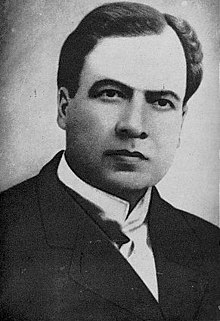
This piece of literature is a poem titled “Raza” written by Rubén Darío, a mestizo Nicaraguan poet, who is considered to have initiated the Spanish-American literary movement known as modernismo. The poem addresses themes of oppression and conflict dating back to the Colonial period that have continued into the Neocolonial era. Also, the poem exhibits elements of racial pride that reflect the greater emergence of mixed-raced persons into cultural spheres in the Neocolonial period.
Rubén Darío begins his poem by proclaiming that, for centuries, “aspergillums and swords have been precise” in sprinkling water and spilling blood (Dario 1905). An aspergillum is a religious instrument used in Catholic ceremonies to sprinkle holy water. Dario’s mentioning of the aspergillum’s centuries-long usage reflects how the Catholic religion had existed as the predominant religion in the region during the Neocolonial period dating back to the Colonial period when Catholicism was forced upon the Natives and African slaves. Also, Darío’s mentioning of the sword’s centuries-long usage in spilling blood represents how conquistadors engaged in several bloody conflicts in the Colonial period through killings of Native and African peoples and how bloody conflicts continued in the region during the Neocolonial era.
Toward the end of the poem, Darío mentions “proud Indians, like the great Nicarao,” a Native chief who ruled over a region in southwestern Nicaragua in the early 16th century, who he believes performed an “epic” action by helping his friend cross Lake Managua (Darío 1905). Darío’s use of the words “proud,” “great,” and “epic” demonstrate respect for the Native peoples and elements of Darío’s racial pride in his mestizo identity. Ultimately, these elements of mixed-race racial pride demonstrate how more mixed-race persons were gaining cultural influence in the Neocolonial period.
Works Cited:
Darío, Rubén. 1905. “Raza”.
